A sane person to an insane society must appear insane.
-Kurt Vonnegut
By Richard Luthmann
In a revealing conversation with the Connecticut Family Court’s “First Amendment Prisoner,” Paul Boyne expressed deep frustration over the conduct of his court-appointed lawyers. He accused them of sabotaging his plea deal by raising concerns about his competency to stand trial.
The Virginia blogger is facing 18 counts of stalking and electronic stalking for posts on his Family Court Circus website.
The judge had been prepared to sentence Boyne to time served, which would have meant his release that day. Instead, he says Jennifer M. Buyske and Alice M. Osedach Powers, his court-appointed Connecticut attorneys from the Manchester-based Kirschbaum Law Group, LLC, blindsided him with a competency claim.
By raising the issue of Boyne's mental competency to stand trial and potential disability, he was legally precluded from taking a plea deal.
Boyne, who has been in pre-trial detention for over a year on charges of stalking and electronic stalking, believes the last-minute competency claim was a deliberate move to prolong his incarceration. He cites the law to support his position - as ably as a Connecticut Supreme Court Justice.
He’s not crazy. At least in the “legal sense,” where he is a probable harm to himself or others. If you disagree, listen to the conversation. He quotes a litany of legal authority and modern commentary to support his legal position, including UCLA Law School Professor and First Amendment scholar Eugene Volokh.
He vehemently believes former CT Supreme Court Justice and former DCF Commissioner Joelle Katz is manipulating his case (45-minute mark).
A Pretextual Claim of Incompetency?
Boyne detailed how his legal team, including attorneys Alice Powers and Jennifer Buyske of the Kirschbaum Law Group, blindsided him just as he was prepared to take a plea deal that would have allowed him to walk free. According to Boyne, the plea agreement had been approved by Judge Gerald Harmon, who was ready to sentence him to time served.
“I was ready to plead out to anything,” Boyne told Luthmann during the phone call. “I told my lawyer I’d even admit to being the gunman on the grassy knoll just to get out of jail. But instead of letting me go, they claimed I was incompetent. It killed the deal.”
The issue of Boyne’s competency was raised based on a concussion he suffered during an altercation in jail in August. Powers reportedly told the judge that the injury had compromised Boyne’s ability to understand the proceedings, which led the court to order a competency evaluation. However, Boyne strongly disputed this assessment.
“I had a concussion, sure, but it didn’t affect my ability to understand what was happening. I was fully aware and ready to plead,” Boyne said. “This was just a tactic to delay the trial and keep me locked up.”
During the call, Luthmann read a series of questions he had previously sent to Boyne’s attorneys, addressing their decision to raise the competency issue so late in the process. The questions included whether Boyne had been consulted about the decision and what evidence supported the claim of incompetence.
As of publication, neither Boyne’s lawyers nor the Connecticut Public Defender’s office had responded to Luthmann’s inquiries.
Boyne suggested that the real motivation behind the competency claim was to shield the judges involved in the case from being cross-examined. He is accused of stalking three Connecticut judges—Elizabeth Stewart, Jane K. Grossman, and Thomas G. Moukawsher—through his blog, TheFamilyCourtCircus.com.
Constitutional Issues
Boyne has consistently argued that his critical and controversial posts are protected under the First Amendment as free speech. Several landmark cases form the backbone of Boyne’s legal strategy as he fights the charges against him. He argues that Connecticut’s prosecution is an attempt to criminalize free speech and dissent.
One of the most relevant cases Boyne has invoked in his defense is Dombrowski v. Pfister (1965). This U.S. Supreme Court ruling allows federal courts to intervene in state prosecutions when those prosecutions infringe on constitutional rights, particularly free speech.
Boyne argues that Connecticut’s actions fall squarely into this category, as he believes the state is using its criminal laws to silence his criticism of the judiciary. He has filed federal motions seeking relief under Dombrowski, claiming that the state’s prosecution has a chilling effect on free speech and political expression.
Another significant case that Boyne references is Godinez v. Moran (1993), which establishes the standard for competency in criminal trials. This ruling holds that a defendant must have “sufficient present ability to consult with his lawyer with a reasonable degree of rational understanding” and must also possess “a rational as well as factual understanding of the proceedings.”
Boyne insists that despite suffering a concussion in jail, he was fully capable of understanding the legal proceedings and was prepared to take a plea deal. He argues that his attorneys raised the competency issue not because he was mentally unfit, but as a strategic move to delay the trial.
Boyne’s defense also invokes Brandenburg v. Ohio (1969), another landmark case in First Amendment jurisprudence. Brandenburg set the standard that speech can only be prohibited if it is “directed to inciting or producing imminent lawless action” and is “likely to incite or produce such action.”
Boyne argues that his blog posts, while critical of the judiciary, do not meet this standard, as no imminent threat of violence stems from his writings.
Finally, Boyne has pointed to the recent U.S. Supreme Court decision in Counterman v. Colorado (2023), which clarified the legal standard for what constitutes a “true threat.” The ruling emphasized that the intent behind the speech is crucial and that the speaker must know their words would be interpreted as a threat.
Boyne contends that his writings about the judges, while inflammatory, do not rise to the level of a true threat, as they were not intended to incite harm. He believes this decision bolsters his argument that his prosecution is rooted in political motives rather than legitimate criminal conduct.
Cross Examination of CT Judges and Vague Charges
“They don’t want me to question these judges,” Boyne said. “They know if I cross-examine them, I’ll expose the truth. That’s why they’re dragging this out.”
The charges against Boyne have been vague, with Boyne pointing out that he hasn’t even been in Connecticut since 2013.
“They claim I was stalking people in Connecticut from October 2021 to April 2024, but I’ve been in jail since July 2023,” Boyne explained. “They haven’t provided any specifics.”
When Luthmann asked about state attorney Jack Doyle's possible involvement, Boyne mentioned that his blog had published articles about Doyle, but he had never met him personally. Despite the apparent conflict of interest, there was no discussion of recusing Doyle from the case.
Boyne also raised concerns about the broader implications of the charges, particularly the vagueness of the statutes under which he is being prosecuted. He believes the state is avoiding addressing these issues because it could open the door for federal court jurisdiction.
“They don’t want to touch the vagueness of the charges because it could bring federal court into play,” Boyne said. “They’re trying to avoid dealing with these constitutional issues.”
Boyne Gripes His CT Lawyers
As the conversation concluded, Boyne reiterated his belief that his lawyers were not acting in his best interest.
“They weren’t ready for trial, and they never communicated a real defense strategy to me,” he said. “I should have walked out of that courtroom a free man, but instead, I’m still sitting in jail because of my lawyers.”
Boyne’s frustration with his legal representation was palpable, and he made it clear that he feels betrayed by those who are supposed to defend him.
“Send those questions to the Public Defender’s Office,” Boyne told Luthmann. “They have the authority to terminate the contract with my counsel, and I think that’s exactly what needs to happen.”
Stay tuned for developments. Boyne and I have discussed his theories about who is “keeping” him in Connecticut lock-up and why. According to Boyne:
“They raised the issue because I believe Joelle Katz is involved, and I had a concussion. Katz has been documented as promoting using the criminal justice system to combat ideologies like mine, which are critical of certain authorities.”
These claims will be the subject of a future post.
The complete questions and a summary transcript of the Boyne interview are below.
QUESTIONS FROM INVESTIGATIVE REPORTER RICHARD LUTHMANN TO PAUL BOYNE’S COUNSEL AND THE CONNECTICT PUBLIC DEFENDER’S SERVICE; LUTHMANN RECEIVED NO RESPONSE AS OF PRESS TIME
From: Richard Luthmann <richard.luthmann@protonmail.com>
Date: On Wednesday, September 25th, 2024 at 11:06 AM
Subject: Re: People v .Boyne
To: audrey.gilzene@pds.ct.gov <audrey.gilzene@pds.ct.gov>, alix.walmsley@pds.ct.gov <alix.walmsley@pds.ct.gov>, deborah.d.sullivan@pds.ct.gov <deborah.d.sullivan@pds.ct.gov>
CC: jennifer@kirschbaumlaw.com <jennifer@kirschbaumlaw.com>, alice@kirschbaumlaw.com <alice@kirschbaumlaw.com>, damon@kirschbaumlaw.com <damon@kirschbaumlaw.com>, Frank Parlato <frankparlato@gmail.com>, Michael Volpe <mvolpe998@gmail.com>, emahony@courant.com <emahony@courant.com>
Good Morning,I am an investigative journalist about to go to press on a piece on the above-referenced Paul Boyne case.
On September 11, we reached out to the Kirschbaum law firm for information and comment. Specifically, we inquired about the allegations that Paul Boyne was incompetent to stand trial on his present stalking/cyberstalking case. They ignored our request.
Does the Connecticut Public Defender Service have anything to say on behalf of the Kirschbaum law firm? I assume that Kirschbaum is an agent / contractor of the CT PDS. Please correct me if I am wrong.
Any clarification or comment on the below would be appreciated
Regards,
Richard Luthmann
Writer, Journalist, and Commentator
Tips or Story Ideas:
(239) 631-5957
richard.luthmann@protonmail.com
Muck Rack Profile
Substack: This is For Real?
Contributor: Frank Report
Editor-In-Chief: FLGulf.news
Contributor: Sun Bay Paper
Follow Me on TRUTH
Sent with Proton Mail secure email.On Wednesday, September 11th, 2024 at 3:45 PM, Richard Luthmann <richard.luthmann@protonmail.com> wrote:
Good Afternoon Attorneys Buyske and Osedach Powers,
I am an investigative journalist covering the Paul Boyne case. I just spoke with Mr. Boyne, am about to publish a piece, and I would like to afford you an opportunity to comment. We have these concerns:
Competency Claim:
Why did you raise the issue of Paul Boyne's competency just before a plea deal was set?
What evidence did you have to support the claim of incompetence to stand trial?
Was the concussion the primary basis for your claim, or were there other factors?
Did you consult with Boyne about this strategy before raising it in court?
How does Boyne’s alleged incompetence align with his ability to consult with you and understand the proceedings, as required by Godinez v. Moran?
Plea Deal:
Boyne claims that Judge Gerald Harmon was prepared to sentence him to time served. Did you discuss this with Boyne?
Why did you not pursue the plea deal that would have resulted in Boyne’s release?
What was the reasoning behind rejecting or sabotaging the plea agreement?
Did Judge Harmon indicate that time served was sufficient to resolve the case?
Mental State and Competency:
Under Connecticut General Statutes §54-56d(a), why did you believe Boyne was unable to understand the proceedings or assist in his defense?
Was there any psychiatric evaluation conducted prior to making the competency claim?
Did you consider any alternative strategies instead of claiming incompetence?
How does the concussion from the jail altercation affect Boyne’s mental state to the point of incompetence?
Communication with Boyne:
Did you inform Boyne ahead of time that you planned to raise the issue of incompetence?
Why does Boyne believe he was blindsided by this tactic in court?
Have you clearly communicated your defense strategy to Boyne throughout the case?
Potential Ethical Concerns:
Are you aware of the ethical concerns raised regarding claims of incompetence when a client seems fully capable of understanding the proceedings?
How do you respond to accusations that the incompetence claim was a pretextual strategy to delay the trial?
Boyne alleges that you are working against him and sabotaging his case. How do you address these serious allegations?
Trial Readiness:
Boyne claims you were unprepared for trial. Can you provide any explanation for this perceived lack of readiness?
Have you gathered sufficient evidence and formulated a defense for Boyne's trial?
Was there any plan in place to defend Boyne on the merits of his First Amendment claims?
Competency Evaluation Process:
What steps have been taken to initiate the competency evaluation following the court’s order?
How long do you expect this evaluation to take, and what impact will it have on the trial timeline?
Did you consider the potential delays and impact on Boyne's detention when raising the competency issue?
First Amendment Defense:
Boyne’s defense is heavily rooted in First Amendment protections. How are you preparing to argue these constitutional issues in court?
Do you have experience with First Amendment cases, particularly in the context of protected speech versus true threats?
Boyne says your firm has spent over $25,000 of attorney time researching these issues on his behalf. Is this true?
Accusations of Pretextual Claims:
Legal experts and commentators, including Michael Volpe, suggest that the incompetence claim was pretextual. How do you respond to these claims?
Boyne alleges that this tactic is commonly used in Connecticut courts to extend incarceration. Is there any basis for this claim in your experience?
Impact on Boyne's Rights:
Boyne insists that your actions have violated his rights to a speedy trial and effective legal representation. How do you respond to these accusations?
Did you consider the long-term impact of delaying Boyne’s release on his constitutional rights?
Next Steps:
What are your plans moving forward to resolve Boyne’s case and address his concerns?
How do you plan to restore trust with your client given his public accusations of betrayal?
What will be your strategy to ensure that Boyne receives a fair trial after the competency evaluation is completed?
Additionally, let me know if you have any other issues you would like to address. Boyne has raised the claim that because Mr. Kirchbaum is Jewish, he is under the influence of the "ADL" and the "Jewish Conspiracy" that controls the Connecticut courts. We have repeatedly denounced Paul Boyne's anti-Semitism. However, we would be remiss if we did not raise that allegation communicated by your client and ask for comment and/or response.
I thank you in advance for your time.
Regards,
Richard Luthmann
Writer, Journalist, and Commentator
SUMMARY TRANSCRIPT OF CONVERSATION BETWEEN PAUL BOYNE AND INVESTIGATIVE REPORTER RICHARD LUTHMANN
Richard Luthmann (0:00):
So, I'm going to record this call. You’re okay with that, right?
Paul Boyne (0:10):
Sure.
Richard Luthmann (0:11):
I put together a summary of what we discussed yesterday about your lawyer bringing up the competency issue at the last minute. This will be published on the Frank Report and my Substack. I also gave your lawyers a set of questions, but they haven’t responded yet. I’ll read those questions to you and get your reaction. Here’s what I asked them:
Why did you raise Paul Boyne’s competency issue just before the plea deal?
What evidence supports the claim of incompetence?
Was the concussion the main reason for this, or were there other factors?
Did you consult Boyne about this before raising it in court?
How does Boyne’s alleged incompetence align with his ability to understand the proceedings, as required by Godinez v. Moran?
Why didn’t you pursue the plea deal that would have led to Boyne’s release?
I also asked about their preparedness for trial, their communication with Boyne, and the delays caused by the competency claim. I gave them every question in the book, and if they don’t respond, I might publish your reactions instead. So, what are your thoughts?
Paul Boyne (6:37):
Those are objective questions. First, my lawyer is under contract with the state of Connecticut. You should send those questions to the Director of Assigned Counsel, Alix Walmsley, and copy Deborah D. Sullivan, the General Counsel for the Chief Public Defender. They would love to answer those questions, especially since Alice Powers raised the competency issue.
Richard Luthmann (8:55):
So, it was your counsel the one who raised the issue?
Paul Boyne (9:01):
Yes, but Alice Powers isn’t the counsel of record. That’s Damon Kirschbaum. Alice works under Damon, who raised the competency claim. According to the law, Damon has the burden of proving I’m incompetent, which makes us adversaries. That means Damon can’t continue representing me.
Richard Luthmann (10:43):
So, your relationship with your attorney is basically broken.
Paul Boyne (10:54):
Exactly. There’s a contract in place, and Damon violated it. Back on Thursday and Friday, before court, I was texting with Jen about the motions that were supposed to be heard. But when I showed up, Alice pulled me aside and claimed it was her responsibility as my lawyer to raise the competency issue. I told her no one would believe I’m incompetent, but she went ahead anyway.
Richard Luthmann (12:56):
In 2022, Connecticut added Rule 8.4(7) to the Rules of Professional Conduct. It says that if a lawyer discriminates based on disability, including mental disability, they can face serious ethical consequences. Do you think this is what’s happening here?
Paul Boyne (13:49):
They violated professional conduct rules months ago. They weren’t ready for trial, hadn’t completed discovery, and hadn’t prepared any expert witnesses. My attorneys never laid out a defense strategy for me.
Richard Luthmann (18:11):
Do you think their allegations about your mental state stem from your beliefs that the Connecticut judiciary is controlled by certain groups?
Paul Boyne (18:33):
No. They raised the issue because I believe Jozette Katz is involved, and I had a concussion. Katz has been documented as promoting using the criminal justice system to combat ideologies like mine, which are critical of certain authorities.
Richard Luthmann (21:29):
What are the charges against you?
Paul Boyne (21:36):
I have 18 counts of stalking, but there are no details. The Sixth Amendment requires the state to disclose the nature of the accusations, but they haven’t done that. The prosecutor just said I was stalking people in Connecticut from October 2021 to April 2024, even though I’ve been in jail since July 2023.
Richard Luthmann (23:00):
And you weren’t even in Connecticut during that time?
Paul Boyne (23:14):
Correct, I haven’t been in Connecticut since 2013.
Richard Luthmann (23:40):
The stalking allegations are from three judges, right?
Paul Boyne (23:50):
Yes, Elizabeth Stewart, Barry Grossman, and Luke House.
Richard Luthmann (25:08):
Have you written anything about the prosecutor, Jack Doyle?
Paul Boyne (25:27):
Yes, the blog has some articles about him. I’ve never met him, but I recognized him at my arraignment. There was no discussion of recusing him, even though it seems like there’s an appearance of impropriety.
Richard Luthmann (28:05):
Who do you think is pulling Doyle’s strings?
Paul Boyne (28:18):
It’s hard to say, but I think someone higher up is directing him.
Richard Luthmann (35:50):
Do you think they raised the competency issue to avoid dealing with your pretrial motions?
Paul Boyne (35:50):
Yes, that’s exactly what happened. The vagueness of the statutes I’m charged under is a big issue. They don’t want to address it because it could bring federal court jurisdiction into play.
Richard Luthmann (37:11):
So, the charges themselves are causing irreparable harm.
Paul Boyne (37:24):
Yes, and this goes back to established First Amendment protections.
Richard Luthmann (40:13):
Is Dombrowski one of the “rabbit holes” your lawyers say you’ve sent them down?
Paul Boyne (40:39):
Absolutely. There are many cases they’ve ignored, like Dombrowski, Brandenburg, New York Times v. Sullivan, and R.A.V. v. St. Paul.
Richard Luthmann (45:11):
Let’s wrap up. Finish what you were saying about the stalking charges and Levine’s case.
Paul Boyne (45:31):
For 31 years, Connecticut’s courts have made it clear that stalking doesn’t include speech. The physical act of writing something isn’t criminal conduct—it’s speech, and speech is protected.
Richard Luthmann (51:51):
It sounds like the only harm you’ve caused is giving these judges some anxiety.
Paul Boyne (52:19):
Exactly. Even the prosecutors have admitted there’s no physical conduct involved—it’s all speech.
Richard Luthmann (52:46):
How about the Counterman decision? Could that help you?
Paul Boyne (53:06):
Maybe, but first we need to get past the First Amendment issues.
Richard Luthmann (54:08):
What about your conditions of confinement? Any hope for better access to legal resources?
Paul Boyne (54:51):
Not much. I’ve filed an injunction in federal court, but we’ll see what happens.
Richard Luthmann (57:02):
Judge Dooley dismissed your habeas without even letting you testify. Is that true?
Paul Boyne (57:02):
Yes, and it’s complete nonsense. She claimed the abstention doctrine applied, but that doesn’t hold up in First Amendment cases like mine.
Richard Luthmann (59:39):
Any final thoughts?
Paul Boyne (59:45):
Send those questions to Deborah at the Public Defender’s Office. She has the authority to terminate the contract with my counsel.


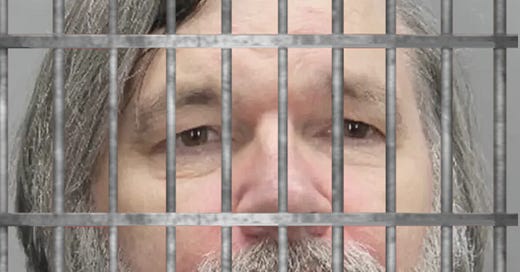



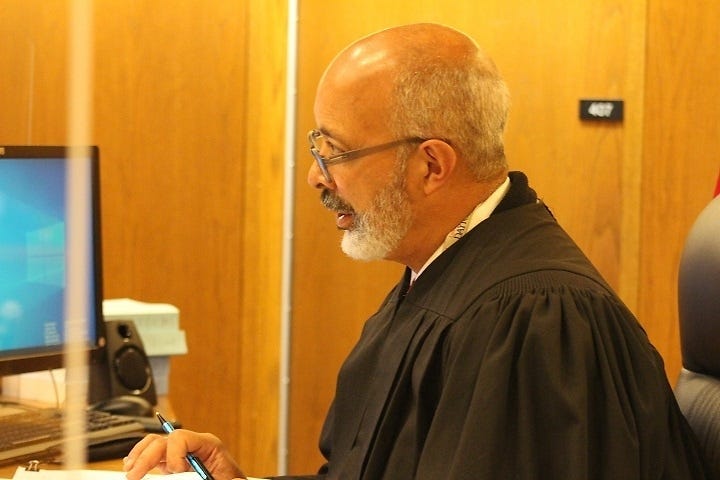
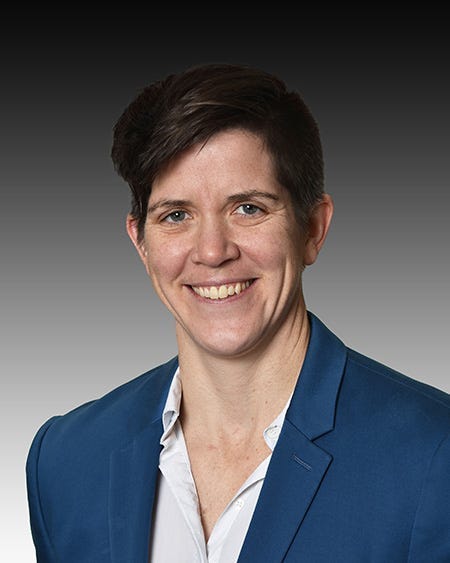

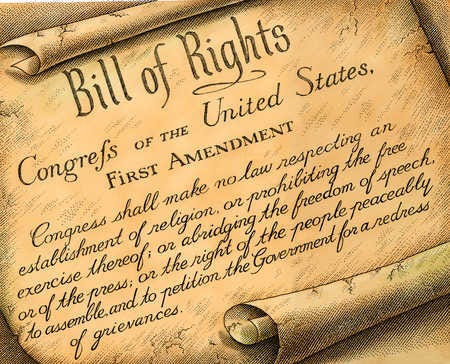
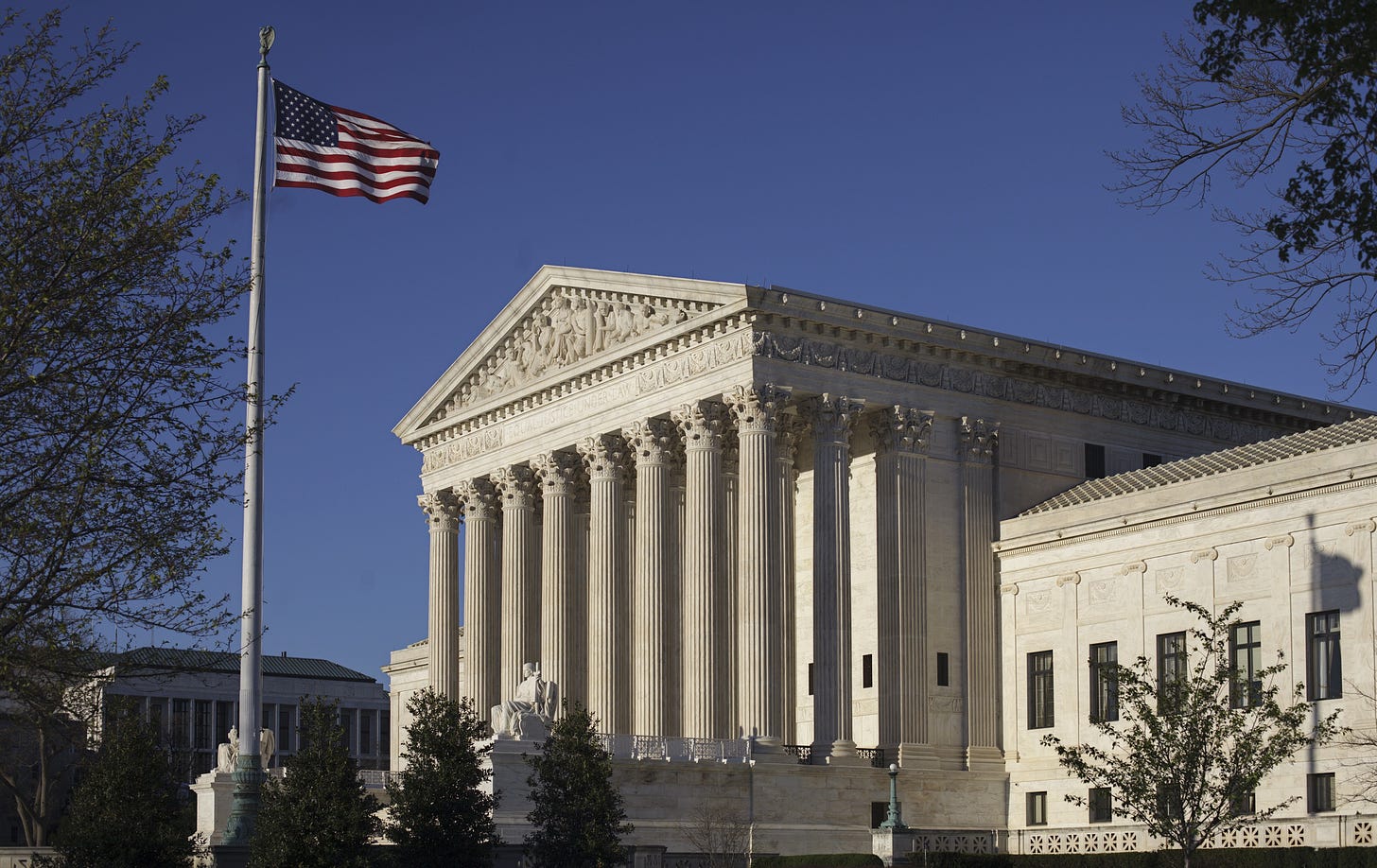
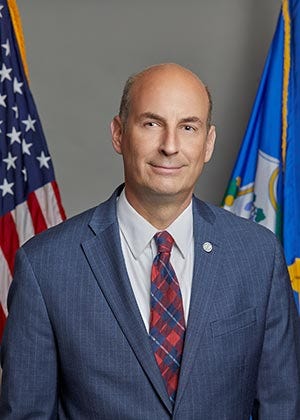
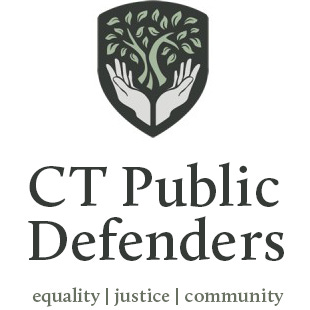









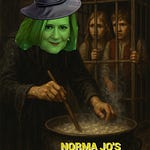
Share this post